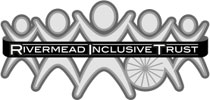Science
Intent
At Walderslade Primary School we believe that pupils need to acquire the key scientific knowledge and concepts through practical first-hand learning experiences. We will encourage our pupils to be curious about natural phenomena and to be excited by the process of understanding the world around them. We will provide pupils with opportunities to develop their independent scientific enquiry skills through rich, stimulating learning experiences. We will promote an atmosphere that encourages pupils to explore and challenge their thinking by asking and answering questions to investigate, making predictions and then conducting experiments using their prior and newly acquired learning. We aspire for pupils to have the self-confidence to clearly explain their reasoning using scientific vocabulary, to have a positive self- esteem, to develop resilience and to learn that sometimes our predictions may not be correct.
Implementation
The National Curriculum in England for Science & Statutory Framework for the EYFS is used as a basis for curriculum planning to ensure year group outcomes are met. The programme of study describes a sequence of scientific knowledge and concepts to ensure pupils develop secure understanding of each key block of knowledge and concepts in order to progress to the next level. At Walderslade Primary School Knowledge Organisers are shared with pupils and parents. These explain key scientific concepts and vocabulary. Teachers will provide practical opportunities in class for pupils to apply their skills and allow pupils to articulate their knowledge clearly and precisely.
Pupils will be exposed to a range of engaging and stimulating science lessons in all three disciplines biology, chemistry and physics that cover: plants, animals (including humans), materials, seasonal change, habitats, rocks, light, forces, states of matter, sound, electricity, earth and space and evolution and inheritance. Our science lessons are often embedded within our termly expeditions but may be taught as discrete units. Through exciting hooks, pupils will develop independent scientific enquiry skills such as observing over time; pattern seeking; identifying, classifying and grouping; comparative and fair testing (controlled investigations); and researching using secondary sources. Pupils will be encouraged to carry out simple tests and experiments using scientific equipment to gather and record data to use and build on their scientific and mathematical knowledge to draw conclusions. The 5 types of Enquiry have an action that the children are familiar with to highlight the ones that they will use. The Scientist Tool Book is also used to explicitly explain the skills they have used and to discuss the one that will be used during the lesson.
Throughout the school, pupils will have the opportunity to further develop their scientific curiosity through dedicated science days, visits from specialists and through discussions on current scientific developments.
Science in the Early Years is taught through a mix of adult-led and child-initiated activities that encourage pupils to start to develop basic scientific vocabulary and concepts through challenging, practical, purposeful play-based activities. Pupils will engage with these activities to develop an understanding of scientific enquiry and to meet the EYFS outcomes focusing on the specific area of Understanding the World with all the prime areas interlinked.
Impact
The impact of the curriculum on pupils’ progress is monitored in a number of ways. Assessment for learning is continuous throughout the planning, teaching and learning cycle. Observations, assessments and recorded by the class teacher using prior learning Expedition link reviews and Expedition reviews, as well as regular checkpoints. Science specific checkpoints during the expedition are also used to assess understanding. Science suitcases are used weekly and the contents are discussed and then all contents are reviewed at the end of each term.
The subject leader will analyse data in Terms 2, 4 and 6 and conduct lesson observations, book looks and moderation. This is fed back to teachers to ensure the curriculum continues to grow and meets the needs of all pupils. We track pupils’ attainment and progress in science through our Walderslade Assessment Tracker. If necessary, the subject leader will offer staff meetings with CPD sessions to ensure a consistent whole school approach to the teaching and learning of science. As pupils progress through the Key Stages, evidence shows pupils build on their prior learning to develop their understanding of scientific concepts and knowledge of scientific enquiry. They are able to conduct simple experiments to record their findings using scientific diagrams and draw findings and conclusions, which can be used to support or refute ideas or arguments.
Whole School Progression Map - Science
Whole School Vocabulary Map - Science

















